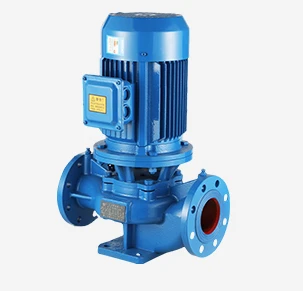Corsican
- Afrikaans
- Albanian
- Amharic
- Arabic
- Armenian
- Azerbaijani
- Basque
- Belarusian
- Bengali
- Bosnian
- Bulgarian
- Catalan
- Cebuano
- Corsican
- Croatian
- Czech
- Danish
- Dutch
- English
- Esperanto
- Estonian
- Finnish
- French
- Frisian
- Galician
- Georgian
- German
- Greek
- Gujarati
- Haitian Creole
- hausa
- hawaiian
- Hebrew
- Hindi
- Miao
- Hungarian
- Icelandic
- igbo
- Indonesian
- irish
- Italian
- Japanese
- Javanese
- Kannada
- kazakh
- Khmer
- Rwandese
- Korean
- Kurdish
- Kyrgyz
- Lao
- Latin
- Latvian
- Lithuanian
- Luxembourgish
- Macedonian
- Malgashi
- Malay
- Malayalam
- Maltese
- Maori
- Marathi
- Mongolian
- Myanmar
- Nepali
- Norwegian
- Norwegian
- Occitan
- Pashto
- Persian
- Polish
- Portuguese
- Punjabi
- Romanian
- Russian
- Samoan
- Scottish Gaelic
- Serbian
- Sesotho
- Shona
- Sindhi
- Sinhala
- Slovak
- Slovenian
- Somali
- Spanish
- Sundanese
- Swahili
- Swedish
- Tagalog
- Tajik
- Tamil
- Tatar
- Telugu
- Thai
- Turkish
- Turkmen
- Ukrainian
- Urdu
- Uighur
- Uzbek
- Vietnamese
- Welsh
- Bantu
- Yiddish
- Yoruba
- Zulu
Telephone: +86 13120555503
Email: frank@cypump.com
Nov . 15, 2024 18:11 Back to list
pump service
Understanding Pump Service Essential Insights for Optimal Performance
In numerous industries, the effective operation of pumps is vital to ensure smooth processes and productivity. From wastewater treatment and agriculture to manufacturing and construction, pumps play a critical role in moving fluids and maintaining system efficiency. However, like any machinery, pumps require regular maintenance and service to operate at peak performance. This article aims to highlight the importance of pump service, the common types of pumps, and best practices for maintenance.
The Importance of Pump Service
Pump service encompasses a variety of activities aimed at ensuring pumps function correctly and efficiently. Regular maintenance can help prevent unexpected failures, which may lead to costly downtimes and operational delays. Furthermore, maintaining pumps can enhance energy efficiency, ultimately reducing operational costs. A well-serviced pump not only extends its lifespan but also contributes to a more reliable system overall.
Types of Pumps
There are numerous types of pumps available, each designed for specific applications. The most common categories include
1. Centrifugal Pumps These are widely used for transporting fluids with low viscosity. They operate by converting rotational energy, typically from an electric motor, into hydrodynamic energy. Common applications include water supply, chemical processing, and HVAC systems.
2. Positive Displacement Pumps This type of pump moves fluids by trapping a fixed amount of liquid and forcing it into the discharge pipe. Positive displacement pumps are ideal for applications requiring a specific flow rate and are commonly used in the food and beverage industry, as well as in hydraulic systems.
3. Submersible Pumps Designed to be submerged in the fluid they are pumping, submersible pumps are frequently used in applications such as dewatering and sewage management. Their robust design allows them to handle murky water and solid debris.
4. Diaphragm Pumps Known for their reliability, diaphragm pumps are often used in applications involving highly viscous fluids or those containing solids. They are popular in chemical and pharmaceutical industries due to their ability to handle corrosive fluids.
pump service

Best Practices for Pump Maintenance
To achieve optimal pump performance and longevity, adhere to the following best practices for pump service
1. Regular Inspections Conduct routine inspections to identify any potential issues. Look for signs of wear such as leaks, vibrations, or abnormal noises. Regular checks help identify problems early before they escalate.
2. Monitor Performance Metrics Keep track of essential performance metrics, such as flow rate, pressure levels, and energy consumption. Any deviations from the norm may indicate that maintenance is required.
3. Lubrication Proper lubrication of moving parts is crucial for minimizing friction and wear. Follow the manufacturer’s recommendations for lubrication intervals and types to maintain optimal performance.
4. Seal Checks The seals of the pump play a critical role in preventing leaks. Regularly inspecting and replacing seals as needed can help avoid costly fluid losses and maintain efficiency.
5. Cleaning and Maintenance Regular cleaning of the pump and its components is essential, especially if it handles dirty or contaminated fluids. Remove any debris or build-up that may obstruct flow or contribute to wear.
6. Training and Knowledge Ensure that operational staff are well-trained in pump operation and maintenance protocols. Their understanding of the equipment can significantly contribute to its upkeep and troubleshooting.
Conclusion
In conclusion, effective pump service is integral to maintaining the efficiency and reliability of systems across various industries. By understanding the different types of pumps and implementing best practices for maintenance, organizations can minimize downtimes, reduce costs, and ensure optimal performance. Investing time and resources into pump service is not just a preventative measure; it is a commitment to operational excellence and sustainability. Whether it’s through routine inspections, performance monitoring, or staff training, the benefits of diligent pump service far outweigh the costs, ultimately paving the way for smoother operations and enhanced productivity.
-
China Small Slurry Pump Manufacturer - High Efficiency Small Centrifugal Slurry Pumps for Mining & Industry
NewsJun.24,2025
-
Custom Drilling Mud and Slurry Pump Supplier - High Efficiency, Tailored Solutions
NewsJun.10,2025
-
Supply Vertical Submersible Sewage Pump High-Efficiency WQ/QW Pumps Supplier
NewsJun.10,2025
-
Premium Sewage Ejection System & Pumps Efficient Waste Removal
NewsJun.09,2025
-
Premium Wholesale Slurry Pump Impellers Durable & Efficient Slurry Handling
NewsJun.09,2025
-
Top Sewage Pump Companies Durable Industrial Solutions for Efficiency
NewsJun.09,2025










